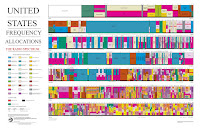Ligado Networks submitted an ex parte letter to the FCC on November 16, calling for a denial of Iridium's petition for a stay of the Commission's 2020 L-Band Order. The long-delayed 2020 order approved deployment next-generation wireless services in valuable L-band spectrum. The Commission should deny the petition because it lacks legal support and there is no risk of immediate harm to Iridium.
As Free State Foundation President Randolph May and I have previously explained, the 2020 order authorizing Ligado to deploy a hybrid satellite-terrestrial wireless network using its licensed L-band spectrum followed an extraordinarily lengthy, careful process. The resulting decision was informed by technical analysis by FCC staff engineers and based on agency rules defining "harmful interference." And it was fully compliant with the Administrative Procedures Act. The order contains tailored safeguards against potential harmful signal interference with incumbent operators in adjacent spectrum bands, including specific signal power limits and other remediation measures.Iridium's stay petition states that its operations could be subject to interference from Ligado's network. It claims that its petition is supported by a September 2022 National Academies of Sciences, Engineering, and Medicine (NAS) report that reviewed the record in the FCC's L-band proceeding. Notably, no new testing was conducted for the NAS report. More importantly, and as Ligado pointed out in its responsive letter, the NAS report expressly relied on the report authors' own definition of "harmful interference" – and not on the Commission's rules defining "harmful interference." Thus, the NAS report made no determination about whether Ligado's network would cause "harmful interference" according to the Commission's rules. And, further to the point, the NAS report acknowledged that it was not making an evaluation of the correctness of Commission's decision in the 2020 order.
Iridium's stay petition amounts to asking the Commission to disregard its own rules defining "harmful interference." But the Commission should stick to its rules as well as its careful decision from 2020 based on those rules.
Additionally, Ligado has publicly stated that it is not going to deploy its terrestrial wireless operations in the L-band while it negotiates with NTIA over these matters. Iridium is therefore facing no immediate harm. In sum, the case for a stay on the 2020 order is without merit.





